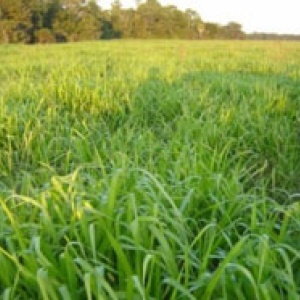
This report was commissioned by the Oxford Farming Conference and undertaken by the Scottish Agricultural College’s Rural Policy Centre. The study examines where the economic, political and natural resource power currently lies in world agriculture, how that might change in future and what it means to British farmers.
As regards economic power, it finds that power is still concentrated in North America and Europe. However, certain countries such as Brazil and New Zealand are currently the largest exporters of some commodities (e.g. beef and dairy products) in the world. While there is little evidence to suggest that this current power situation is likely to be changed markedly in the next 10 years, it is also apparent that the EU as a whole has retreated from world markets as policies have changed and that the export capabilities of the EU-27 in some key commodity sectors are predicted to decline further in the next 10 years, unless policy measures change markedly.
Although the emerging economies, in particular, China and Brazil, have clear advantages in certain commodity markets, their corporate power in agriculture is still not on a par with that of North American (US and Canada) and European countries, especially the UK, France and Germany. These major North American and EU economies therefore are in a strong position to consolidate their economic power through their transnational agribusiness corporations. However, a major challenge for them is to balance corporate power with consumer and farmer power domestically, whilemaintaining global power.
The political power relevant to global agriculture is still concentrated in the hands of the USA, major EU countries and some other economically powerful countries within the G-8 coalition. However, recently there have been indications that this situation is changing and some emerging economies in the developing world are increasingly appearing to be powerful players at the world stage. This has important implications for European and UK agriculture, in particular, in terms of transnational agricultural trades. In the coming decades, EU countries may have to confront increased pressure to allow greater access to their markets. These competitions are likely to come from emerging economies – like China, India and Brazil and will have implications for domestic producers. The report’s analysis also confirms the political influence of transnational corporations (TNCs) in global agriculture. However it finds evidence that their power is not limitless and, that ultimately it is nation states who can control agriculture – for example as shown in 2008 when a number of countries implemented export bans to try to ameliorate the impacts of a food crisis. This finding does not corroborate the suggestions made by some that, in this age of corporate globalisation, the state is powerless to resist corporate activities. Evidence is also found that in some cases civil society organisations and farmer groups have had a significant impact in countervailing or balancing corporate influences.
In terms of control over natural resources it finds that European countries, including the United Kingdom, appear to be relatively poorly endowed in global terms with the critical natural resources used in agriculture – such as land, water, potassium, phosphate, oil and natural gas. This situation, especially the availability of water and energy, is likely to become worse because of the impacts of climate change. Although many of the emerging economies, like Brazil, China and Russia are better-placed in terms of water and energy endowments, some of these countries appear to be vulnerable in terms of their possession of agricultural lands (more specifically, arable lands) and critical minerals relative to their population size. This partly explains the much reported phenomenon of ‘land-grabbing’ in Africa, in which some major EU countries have also taken part.
- The implications for the EU (and UK) are:
- EU countries are likely to face competition for land from countries like China.
- In the shorter term, further improvements in resource use efficiency (water, fertiliser and energy) are needed to sustain current levels of production.
- As traditional resources become more scarce, alternative practices will need to be developed and adopted.
Finally the report attempts to present all these types (economic, political, resource related) of power as an index. The index ranks each country/region on a scale of 1 to 5 (five is high) for the individual components of power discussed. For example the US and the EU top the power index by some margin. However, the index also highlights their potential vulnerability in terms of natural resources (key agricultural minerals and oil). The emerging countries at the moment have lower political and corporate power but seem better placed in terms of natural and mineral resources. It finds that the UK ‘punches above its weight’ in terms of trade, corporate and political power. However, in a global sense it is a small country, and it is lowly rated in terms of natural resources on the power index and this puts it behind Russia and China on the overall index.
Regional power index for agriculture

The report is attached below and online here - if you scroll down this page you will also find a powerpoint by one of the authors, Alan Renwick, summarising the findings. The other presentations and papers from the Oxford Farming Conference are also available and may be of interest.







Post a new comment »